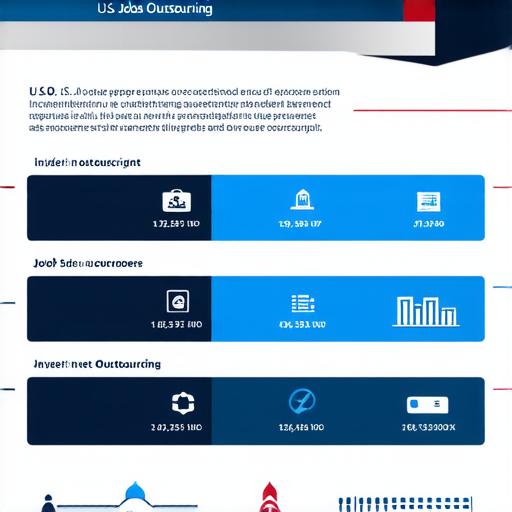Another common misconception about outsourcing is that it is only suitable for low-skilled jobs. However, this simply is not true.
In fact, many high-skilled jobs are being outsourced due to the availability of skilled workers in other countries.
According to a report by Accenture, 65% of companies plan to increase their offshoring activities over the next five years, with the majority of these companies planning to outsource knowledge-intensive services such as engineering and software development. This trend is driven by the fact that many high-skilled workers in other countries are able to perform tasks at a lower cost than those in developed countries.
In addition, outsourcing high-skilled jobs can lead to increased innovation and creativity. By working with skilled workers in other countries, companies are able to tap into new ideas and perspectives, leading to more innovative solutions. This can be particularly beneficial for SMBs that may not have the resources or expertise to develop cutting-edge products or services on their own.
Case Study: Infosys’ Experience with Outsourcing High-Skilled Jobs
Infosys is a prime example of how outsourcing high-skilled jobs can lead to cost savings and increased efficiency. In 2018, the company announced that it would be outsourcing some of its software development jobs to India. This move allowed Infosys to take advantage of a skilled workforce in India, allowing it to increase production without increasing labor costs.
In addition, outsourcing high-skilled jobs can lead to increased diversity and cultural awareness. By working with skilled workers in other countries, companies are able to gain new perspectives and insights that may not have been possible otherwise. This can help to foster creativity and innovation, as well as better understand the needs of diverse customers.
Misconception 3: Outsourcing is only for large corporations with deep pockets
Finally, many people believe that outsourcing is only suitable for large corporations with deep pockets. However, this simply is not true.
In fact, small and medium-sized businesses (SMBs) are increasingly turning to outsourcing as a way to compete with larger companies.
According to a report by the National Federation of Independent Business, 44% of SMBs plan to outsource some or all of their IT functions in the next year. This is because outsourcing can help SMBs to access the expertise and resources they need to grow and compete without the high costs associated with hiring and training their own staff.
In addition, outsourcing can be particularly beneficial for SMBs that may not have the internal resources or capabilities to handle certain tasks in-house. For example, an SMB that specializes in manufacturing may choose to outsource its IT functions to a third-party provider, allowing it to focus on its core competencies and avoid the high costs associated with hiring and training IT staff.
Case Study: QuickBooks’ Experience with Outsourcing IT Functions
QuickBooks is a prime example of how outsourcing IT functions can help SMBs to grow and compete. In 2019, the company announced that it would be outsourcing some of its IT functions to India. This move allowed QuickBooks to access the expertise and resources it needed to improve its software and stay competitive in the marketplace.
In addition, outsourcing IT functions can help SMBs to better manage their resources and budgets. By outsourcing certain tasks to a third-party provider, SMBs can avoid the high costs associated with hiring and training their own staff, as well as reduce their overhead expenses. This can help them to allocate their resources more efficiently and focus on other areas of their business that require attention.

Summary: The Benefits of Outsourcing
In conclusion, outsourcing has many benefits for both companies and individuals. While it is true that some jobs have been lost due to outsourcing, this is not the only factor contributing to job loss; in fact, many companies have been forced to outsource due to rising labor costs and a shortage of skilled workers in the US.
In addition, outsourcing can lead to cost savings, increased efficiency, and improved innovation and creativity. It can also help SMBs to access the expertise and resources they need to grow and compete without the high costs associated with hiring and training their own staff. By dispelling the common misconceptions about outsourcing, we can better understand the true benefits of this important business practice.
